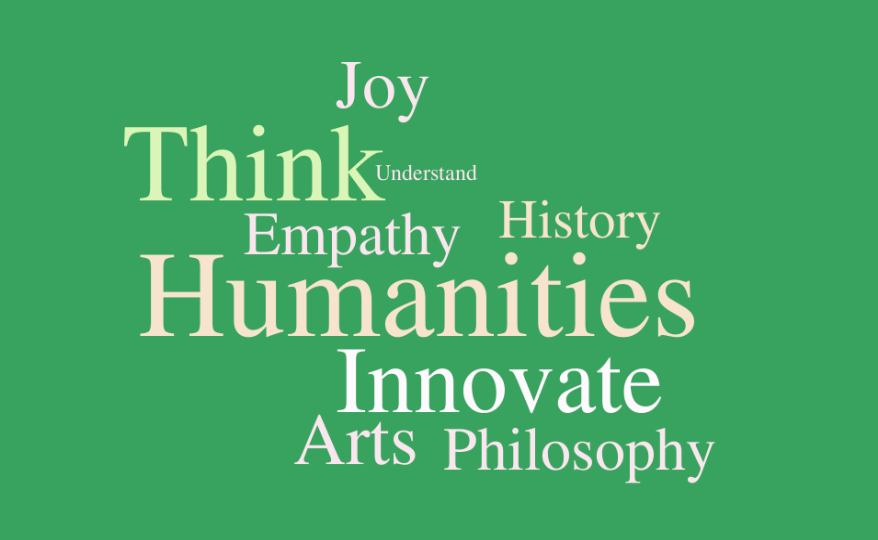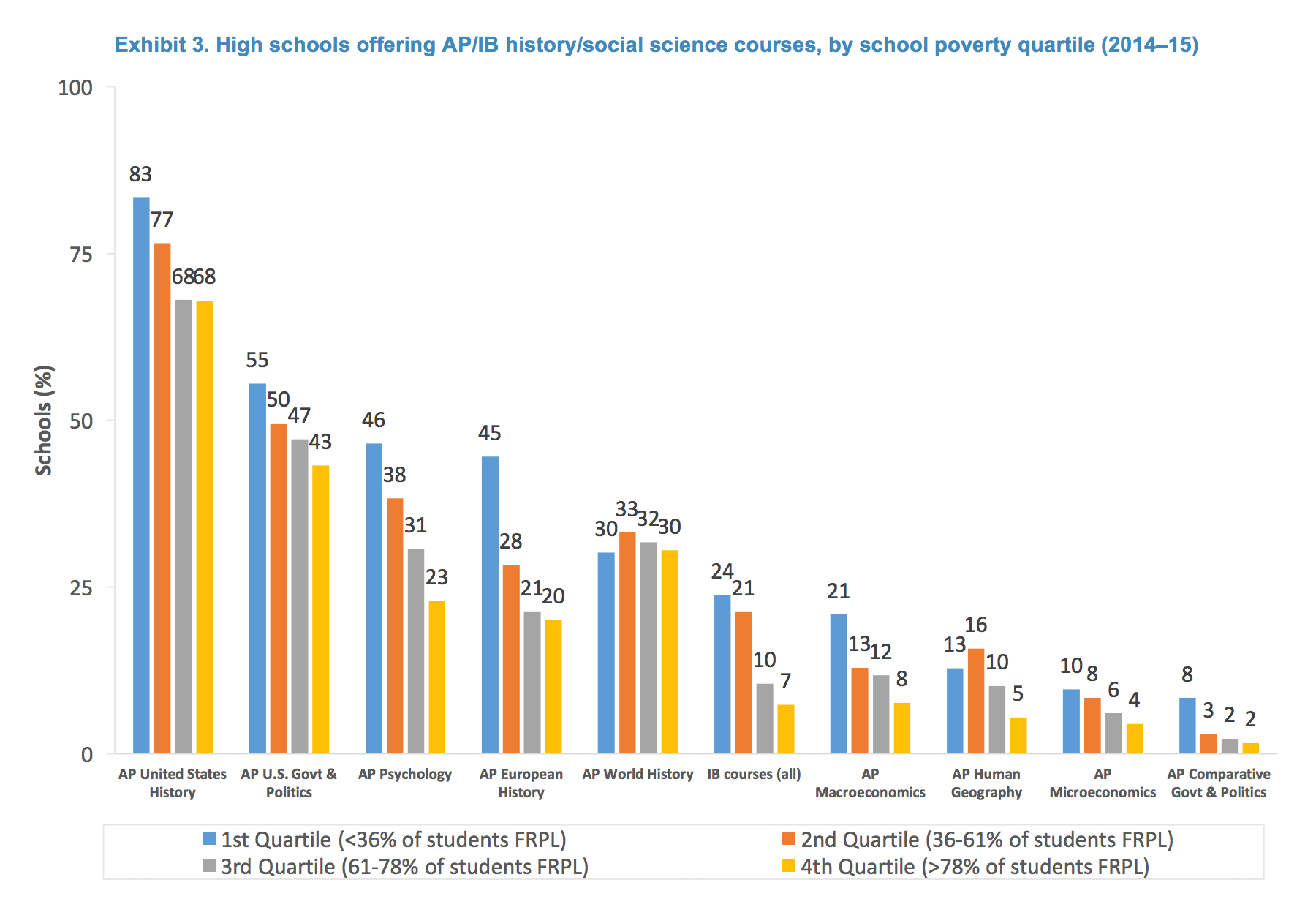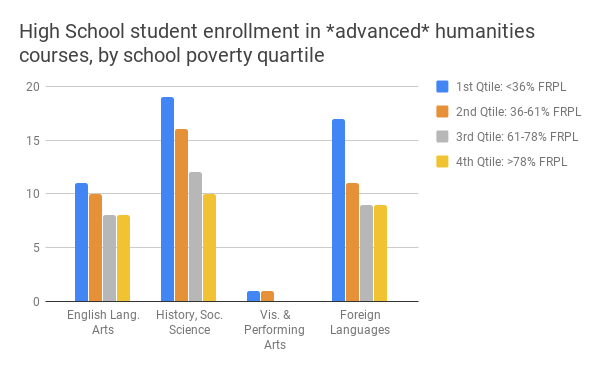What Good Are the Humanities?

Setting the Stage for Empathy in a STEM World
We are at a moment in time when the need to understand and empathize with each other has arguably never been greater.
 Julie Fry
Julie FryYet our schools seem focused on individual educational outcomes like employment rather than a collective pursuit of a civil society.
A recent report, Humanities Education in California: Access, Enrollment, and Achievement, tells us it's time to shift our focus a bit.

The humanities teach us about the human experience—our thoughts, our emotions, our interactions. They are subjects like history, English language arts, philosophy, foreign languages, and the arts: subjects that teach critical thinking, the power of curiosity and the joy of discovery.
Our children need the lessons of the humanities—of our history and our cultures—to help understand and value what we have in common, rather than what divides us.
We need to ensure that all students, not just those in more affluent communities, have a whole-child education, rich in the benefits of the humanities alongside the arts and STEM.
At California Humanities, we are exploring California’s gaps in humanities education, and how to bring the humanities to more students. Anecdotally, we have sensed that humanities education has eroded over time, often left behind in the pursuit of STEM pressures and accountability measures. We wanted to know what is really happening, so we commissioned data analysis and research from SRI Education to look at the access and equity gaps in humanities education.
The findings are sobering. Students in more affluent schools have greater access to rigorous humanities courses than students do in higher-poverty schools. They also are enrolled in advanced courses more frequently than their peers in higher-poverty schools.
These disparities may contribute to achievement gaps on K-12 assessments of English and history, where wealthier and White and Asian students consistently outperform their poorer and Black and Hispanic/Latino peers.
A Closer Look at Key Findings
Not only does California trail most other states in academic performance, according to the National Assessment of Educational Progress (NAEP), but there is a significant gap between low and high-poverty schools.
Access to Advanced Humanities Courses
California high schools offer a diverse set of advanced history/social science courses, but students in more affluent schools have greater access to most courses than their peers in higher poverty schools. Fewer high-poverty high schools offer advanced courses focused on the history and theory of the visual and performing arts than low-poverty schools.

Enrollment in Advanced Humanities Courses
Enrollment in humanities courses is comparable across the four poverty quartiles, except for foreign language courses. But there's a difference: students in more affluent schools are more likely to be enrolled in advanced humanities courses than students in high-poverty schools.

Statewide, male and female students enroll in humanities disciplines at similar rates; however, female students make up the majority of students enrolled in advanced humanities courses in all four disciplines.
Student Achievement
According to the report, student achievement in the humanities leaves plenty of room for improvement.
- Less than half of California students are on track to graduate ready for credit-bearing humanities courses in college based on their scores on the state's 2016 English assessment.
- Fewer than half of California students met proficiency standards on state-wide history exams, and some student subgroups performed only half as well as others.
- Overall, California’s students score at or above the national average on Advanced Placement exams in the humanities. However, California’s White and Asian students score about an entire point higher than Black and Hispanic/Latino students on AP English and history exams.
Turning the Tide
What can we do to turn the tide and ensure that every child has access to a humanities-rich education?
The good news is there are lots of ways to increase access to the humanities, but it will take the engagement of parents in local communities. Here are some questions to ask to help schools and school districts take a closer look at access and equity in the humanities.
|
Assessing Access and Equity |
|---|
|
Do all of the students in our school have access to a strong humanities curriculum? If not, why? This is a good question to ask your principal. |
|
Are humanities courses used to help close achievement gaps? This is a good question to ask at your LCAP and site council meetings. |
|
How are the humanities used to address school climate? This is a good question to ask educators and administrators at your school. |
|
What should my child be learning in English language arts, history/social studies, the arts, and languages? This is a good question to ask your teacher and to have as a topic for a school wide parent meeting. |
|
How is our school providing civic literacy? This is a good question to ask your teachers and principal. |
|
How is the board of education working to ensure all students have access to a robust humanities curriculum? This is a good question to ask at a school board meeting. |
With more education decisions made locally and the adoption of Common Core State Standards that value the humanities, we have the opportunity to ensure that every student has an education that includes the arts and humanities alongside (not instead of) STEM subjects. We need young people who are both data-focused and humanists, and parents and educators who understand that our democracy needs them to provide a robust civic education.
 Julie Fry is President and CEO of California Humanities, a nonprofit partner of the National Endowment for the Humanities. California Humanities promotes the humanities – focused on ideas, conversation and learning – as relevant, meaningful ways to understand the human condition and connect us to each other in order to help strengthen California. California Humanities has provided grants and programs across the state since 1975. To learn more visit www.calhum.org, or follow them on Facebook, Twitter and Instagram.
Julie Fry is President and CEO of California Humanities, a nonprofit partner of the National Endowment for the Humanities. California Humanities promotes the humanities – focused on ideas, conversation and learning – as relevant, meaningful ways to understand the human condition and connect us to each other in order to help strengthen California. California Humanities has provided grants and programs across the state since 1975. To learn more visit www.calhum.org, or follow them on Facebook, Twitter and Instagram.Tags on this post
HumanitiesAll Tags
A-G requirements Absences Accountability Accreditation Achievement gap Administrators After school Algebra API Arts Assessment At-risk students Attendance Beacon links Bilingual education Bonds Brain Brown Act Budgets Bullying Burbank Business Career Carol Dweck Categorical funds Catholic schools Certification CHAMP Change Character Education Chart Charter schools Civics Class size CMOs Collective bargaining College Common core Community schools Contest Continuous Improvement Cost of education Counselors Creativity Crossword CSBA CTA Dashboard Data Dialogue District boundaries Districts Diversity Drawing DREAM Act Dyslexia EACH Early childhood Economic growth EdPrezi EdSource EdTech Education foundations Effort Election English learners Equity ESSA Ethnic studies Ethnic studies Evaluation rubric Expanded Learning Facilities Fake News Federal Federal policy Funding Gifted Graduation rates Grit Health Help Wanted History Home schools Homeless students Homework Hours of opportunity Humanities Independence Day Indignation Infrastructure Initiatives International Jargon Khan Academy Kindergarten LCAP LCFF Leaderboard Leadership Learning Litigation Lobbyists Local control Local funding Local governance Lottery Magnet schools Map Math Media Mental Health Mindfulness Mindset Myth Myths NAEP National comparisons NCLB Nutrition Pandemic Parcel taxes Parent Engagement Parent Leader Guide Parents peanut butter Pedagogy Pensions personalized Philanthropy PISA Planning Policy Politics population Poverty Preschool Prezi Private schools Prize Project-based learning Prop 13 Prop 98 Property taxes PTA Purpose of education puzzle Quality Race Rating Schools Reading Recruiting teachers Reform Religious education Religious schools Research Retaining teachers Rigor School board School choice School Climate School Closures Science Serrano vs Priest Sex Ed Site Map Sleep Social-emotional learning Song Special ed Spending SPSA Standards Strike STRS Student motivation Student voice Success Suicide Summer Superintendent Suspensions Talent Teacher pay Teacher shortage Teachers Technology Technology in education Template Test scores Tests Time in school Time on task Trump Undocumented Unions Universal education Vaccination Values Vaping Video Volunteering Volunteers Vote Vouchers Winners Year in ReviewSharing is caring!
Password Reset
Search all lesson and blog content here.
Login with Email
We will send your Login Link to your email
address. Click on the link and you will be
logged into Ed100. No more passwords to
remember!














Questions & Comments
To comment or reply, please sign in .